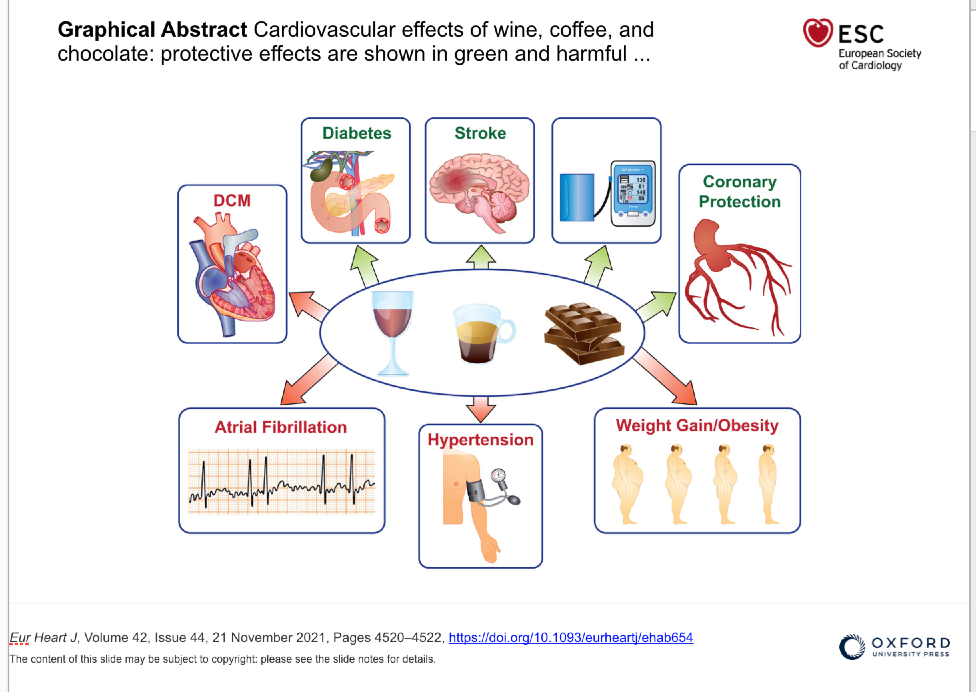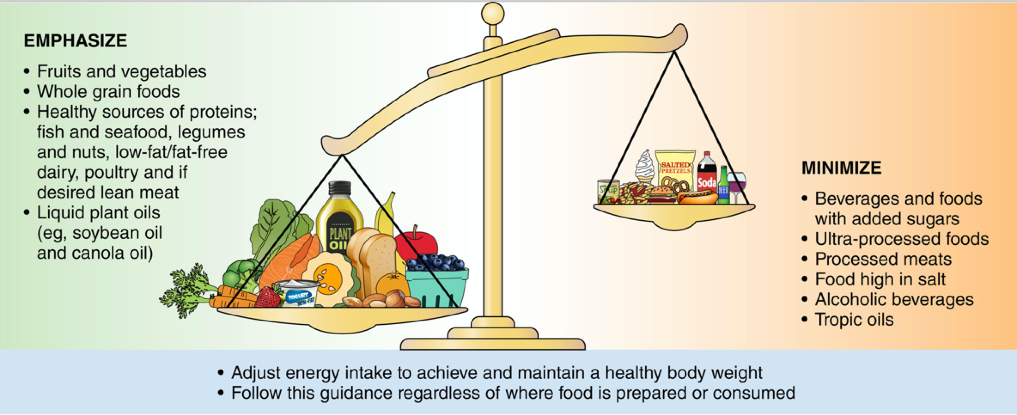Debating the Health Benefits of Wine: An Update
As an informed physician, I am with the majority of health experts who are confident that wine in moderation is
good for you, especially for middle-age to older people. That said, there continues to be conflicting evidence as
to the health benefits of wine and other beverage alcohol as part of a healthy lifestyle leading to confusion
among the public. Without scientific evidence, some have even claimed that no level of alcohol consumption is
safe.
I read all of the medical literature and research on the relationship between alcohol beverages and healthy, yet
I find it challenging to decipher the differing reports. The uncertainty stems primarily from the fact that all
human research to date has been with cohort and case-control studies. There have been no well-executed,
randomized, double-blinded, intervention trials controlled for all confounding variables. Still, although well-performed
observational studies cannot completely exclude possible genetic or environmental predilections to
health outcomes, criteria do exist that can establish a very high probability of causality in these data.
I last wrote about the debate as to the health benefits of wine in Volume 11, Issue 40 of the PinotFile:
www.princeofpinot.com/article/2162/. This issue offers an update on studies published and the opinions of
health care experts in the almost three-year interval.
All In Favor But Further Research is Needed
As reported in the November 2021 issue of AIM Digest Online at www.aim-digest.com, the subject of
“Moderate drinking - is it still a healthy lifestyle choice?”, was discussed in detail. In October 2021, the Wine
Information Council held its 6th webinar on Wine & Health, presented in collaboration with the International
Scientific Forum on Alcohol Research (ISFAR) and Curtis Ellison MD, Dr Creina Stockley, and Erik Skoverborg
MD. This virtual round table delved into the issue of whether moderate alcohol consumption can still be seen as
an acceptable element of a balanced diet and lifestyle, and if, based on recent research, the J shaped curve
still exists to the association between moderate alcohol consumption and all-cause mortality as well as for other
specific diseases. Since most wine consumers are unaware of this very important scientific session, I am
summarizing it here.
Dr Creina Stockley discussed the positive effects of 10-20 g of alcohol a day (a standard drink in the US
contains about 14 g of pure alcohol which is equivalent to 5 ounces of about 12% table wine) on cardiovascular
disease outcomes, but especially when combined with the other heart-healthy lifestyle elements of not
smoking, eating a Mediterranean style diet, maintaining a healthy weight, and exercising moderately. Her
important conclusions:
*Dr. Stockley’s review of key cohort studies found a reduced risk of cardiovascular disease and high
blood pressure by about 30%, reduced risk of ischemic stroke by about 20% and a decrease in high
and unbalanced cholesterol by about 10%, with the consumption of 1-2 drinks per day of alcohol
compared with lifelong abstainers.
*Alcohol achieves its effect in a number of ways with polyphenols giving additional protection. The
removal and transporting LDL cholesterol from the vessel walls may account for 50% of the benefit.
*The benefits are only associated with moderate consumption and higher levels of drinking are
associated with higher blood pressure, atrial fibrillation and hemorrhagic stroke, for example.
Dr Skovenborg looked at the importance of the pattern of drinking and its effect on the J shaped curve. The J
shaped curve has withstood the test of time after years of critique and correction of methodological flaws.
However, the importance of effect-modifying factors like drinking patterns and elements of lifestyle has become
increasingly clear during the last decade. His findings:
*Those who drink little and often have better disease and longevity outcomes than those who abstain
or drink heavily. A large Danish study found that for the same average consumption of alcohol, a nonfrequent
intake implied a higher risk of death than a frequent intake.
*Eating while drinking significantly reduces blood alcohol concentration of alcohol and is a much
healthier pattern of drinking than drinking without eating. Binge drinking is particularly harmful. A large
Danish study found that for the same average consumption of alcohol, a non-frequent intake implied a
higher risk of death than a frequent intake.
Dr Skovenborg went on to look at the effects of alcohol on cancer risk.
*There is no question that alcohol is associated with some cancers, notably breast and cancers of the
upper digestive tract. Alcohol is estimated to be linked to 3.3% of cancers. Breast cancer risk can be
somewhat mitigated by adequate folate in the diet. The combination of smoking and drinking is
particularly carcinogenic for cancers of the upper digestive tract.
*In terms of the risk of dying overall (all-cause mortality) than the five heart-healthy lifestyle factors are
crucial leading to a 65% lower cancer mortality, for example.
Professor Ellison emphasized the importance of all-cause mortality and the significance of the pattern of drinking
and adhering to other healthy lifestyle behaviors.
*Do we live longer if we enjoy a glass of an alcoholic beverage on a near-daily basis? The answer, for
healthy post-menopausal women and men over 40 is still very much, ‘yes’.
*Current scientific data indicate that adults who consume alcohol regularly, with food, and without binge
drinking, have a lower risk of most of the diseases of aging and tend to live longer than if they consumed
no alcohol.
* The J shaped curve is relevant to late-onset diabetes with a significantly reduced risk among
moderate drinkers are shown in study after study.
A large recent study supports the role of a good diet that includes wine in heart health:
*The ASPirin in Reducing Events in the Elderly (ASPREE) clinical study published in the European
Journal of Preventive Cardiology focused on the lifestyle and health of healthy American and Australian
adults over the age of 70. The study did not include former drinkers who may have stopped consuming
alcohol for health reasons. Study participants who consumed 3.5 to 7 drinks per week were less
likely to suffer cardiovascular events than those who abstained. Those who consumed moderate
amounts of alcohol had lower rates of overall mortality compared to heavier drinkers. The study results
only support a correlation and not causation but add more evidence supporting the health benefits of
moderate consumption of alcoholic beverages.
European politicians have recently come out in support of the health benefits of moderate drinking
*The Comté Eurpéen des Entreprises Vins (CEEV) that represents the wine trade in the European
Union (EU), is urging the European Parliament to reconsider the statement that there is “no safe level of
alcohol consumption”, which came from an EU report in the Special Committee on Beating Cancer
(BECA), a claim that was based on a flawed study. Despite the opposition, the EU report was adopted
by the European Parliament. CEEV notes that the ‘no safe level’ message is counterproductive, as the
moderate consumption of wine, particularly as part of the Mediterranean diet and as part of a healthy
lifestyle, is associated with greater longevity and the prevention of disease. The ‘no safe level’ assumption
is based on a single study - Global Burden of Diseases (GBD) study published by The Lancet in 2018
which has been severely criticized by the scientific community for its analytical flaws.
Seminar supports wine drinking in moderation:
*The results of a study called PREDIMED (Prevención con Dieta Mediterránea) looked at wine and
weight management was presented at a seminar earlier this year. Glucose tolerance and triglycerides
levels were measured among the 7,500 randomized participants. The results indicated that wine
drinkers, particularly those having between 7 and 14 units per week, had a lower number of
cardiovascular risk factors compared to non-drinkers.
Not Particularly in Favor
A world-leading cardiologist and editor of the European Heart Journal for more than a decade, Professor
Thomas Lüscher, led a team that reviewed over 3,200 submitted manuscripts from scientists and doctors and
found that many were not deemed to be backed by enough solid data to be published. After resigning his role
at the European Heart Journal, Dr Lüscher, weighed in on the question of whether wine, chocolate and coffee
were good for the heart in the November 21, 2021, issue of The European Heart Journal. He said there were
pros and cons to each, depending on how much and how often each of them was consumed, as well as by
whom. He believes that coffee and chocolate (dark, bitter chocolate) are associated with a lower risk of heart
disease, but alcohol overall provides little if any health protection. That said, he enjoys good red wine in
moderation on weekends. This graphical abstract below summarizes his beliefs with protective effects shown in
green and harmful effects in red (DCM stands for dilated cardiomyopathy).

The 2021 American Heart Association Dietary Guidance to Improve Cardiovascular Health was published in
the November 2, 2021, issue of Circulation. Evidence-based dietary pattern guidance to promote
cardiometabolic health includes the following: (1) maintain healthy body weight; (2) eat plenty and a variety of
fruits and vegetables; (3) choose whole-grain foods and products; (4) choose healthy sources of protein
(mostly plants, regular intake of fish and seafood, low-fat or fat-free dairy products, and lean cuts and
unprocessed forms of meat and poultry; (5) use liquid plant oils rather than tropical oils and partially
hydrogenated fats; (6) choose minimally processed foods instead of ultra-processed foods; (7) minimize the
intake of beverages and foods with added sugars; (8) choose and prepare foods with little or no salt; (9) if you
do not drink alcohol, do not start; and (10) If you choose to drink alcohol, limit intake.

Elaborating more on alcohol consumption, the Dietary Guidance noted that the relationship between alcohol
intake and cardiovascular disease is complex. The risk appears to differ by amount and pattern of alcohol intake,
age and sex of individuals and type of cardiovascular outcome. As alcohol intake increases, so does the risk of
hemorrhagic stroke and atrial fibrillation. For coronary heart disease and ischemic stroke, there is a J shaped
relationship, with the lowest risk at low alcohol intake. (1 to 2 drinks per day and higher risks at no intake and
higher intake).
The 2020 Dietary Guidelines Advisory Committee recently concluded that those who do drink should consume
no more than 1 drink per day and should not drink alcohol in binges. In contrast, the 2020-2025 Dietary
Guidelines for Americans continues to recommend no more than 1 drink per day for women and 2 drinks per
day for men.